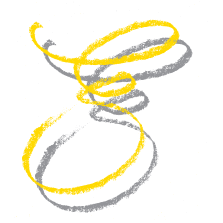It was remarkable that it could happen at all, this performance of Die Walküre; but it was even more remarkable that it was so fine. The members of the orchestra could not have had the chance to develop a collective stamina for four hours of concentrated playing, and there were occasionally some glitches and some evidence of fatigue. What mattered more, and very positively, was the strength of commitment that Michael Thorne and his forces demonstrated. They dug deep and generated an emotional conviction which can elude more polished ensembles. In point of fact the solo cellos at the beginning of Act I had nothing to fear from comparison with world’s most famous, and how many Ring orchestras manage Wagner’s six harps for any instalment of the cycle except Das Rheingold. Equally there was nothing niggardly about the motive power and the wellsprings of transcendental euphoria, that peculiar Wagnerian quality, which this performance released.
As for the cast, I have to reach back to memories of Karajan’s days at Vienna, with Vickers and Nilsson and Hotter, for a Die Walküre that was overall as well sung as this. The big individual surprise was Elisabeth Meister. With this performance she enters the same stellar league for Sieglinde as Gundula Janowitz, Waltraud Meier and even Gwyneth Jones. Voices are notoriously difficult to describe, but Meister has some of Janowitz’s purity but sweeter, less minty, and with more warmth in the lower registers. Her soft singing – and she was not afraid to sing very softly – still filled the hall, and it was a model of tenderness; her mezza voce was cause for joy; and at “O hehrstes Wunder!” she opened out thrillingly, easily riding the tumultuous orchestra. She is also a real ‘Podium-Pferd’, a natural stage animal, in that her body language and facial expressions never ceased to express the gamut of Sieglinde’s feelings. Much the same could be said of her very personable Siegmund, Michael Bracegirdle, who alternated an engaging gentleness with heroism at its most tremendous (but let him beware of the faintest hint of a knödel developing). “Schwester, geliebte!” was one of his many beauties; and not since Jon Vickers has this phrase touched the heart with such affection and compassion. Together this lightfilled pair generated a voltage that was palpable. How good too that Julian Close brought a certain balancing magnificence to Hunding. A timbre of charcoal and a strong presence gave a minatory force to this often thankless role.
Andrew Greenan has likewise a particular advantage as Wotan; he is a genuine high bass with a timbre of dark chocolate, whereas most of today’s front-runners in the role are not. He scored particularly in phrases like “Endlose Grimm” which lie well up in the treble clef, where a normal bass can sound thin and strained, but then he scored again in the lower extremities, at “Untreue übt ich”, where a baritone can miss the weight and authority which are part of Wotan. It is frustrating that we cannot hear Andrew Greenan or any of the singers of this performance in the main houses of British opera, but is it a surprise? After all, we cannot hear James Rutherford and Catherine Foster who have both taken centre stage at Bayreuth; British Managements of today, stultified by an inverted chauvinism, always seem to prefer any semi-competent foreigner to the huge talents of our own nationals.
In no other work by Wagner do the ladies outnumber the men as they do in Die Walküre, and as Fricka Sarah Pring outmanoeuvred her Wotan just as decisively. This was a strong woman, legally and morally impregnable, exploiting her creamy timbre to deliver a succession of diatribes and broadsides, and do it exquisitely; no wonder she left her estranged spouse deflated. The eight Valkyries were not a uniform ensemble but a line up of striking individuals. Collectively they bore out Siegmund’s initial acknowledgment to Brünnhilde, that she and by extension the other Valkyries are beautiful. It was good to hear how our Brünnhilde, Elaine McKrill, had extended the amplitude of her timbre, although her vibrato had also widened a little. Elaine McKrill encompasses the whole of Brünnhilde, the girlish Amazon, the daughterly concern for her father’s broken spirit, the crushed confusion at the raging tyrant she never imagined he could become, the sibylline austerity of her address to Siegmund, the overwhelming compassion that leads her to break her father’s orders, her initial abject terror before his wrathful pursuit, her extraordinary courage as she argues her point, and her ecstasy when he ultimately converts her punishment into glory. How good that she and Andrew Greenan really acted out their cathartic reconciliation. How good that they embraced exactly at the sounding of Wagner’s ineffable 6/4 chord. It would also have been good if Wotan had additionally turned to gaze at her sleeping form, one last look, and then departed, leaving the stage to her – alone with the magic fire, flashing and flickering as it did in Michael Thorne’s orchestra. For the seeing ear, no visual representation could add anything to this.
Yes, there were imperfections; but what did they matter in the face of such greatness as we were privileged to witness, we who were there at Saffron Hall on Sunday 9th October 2016?
